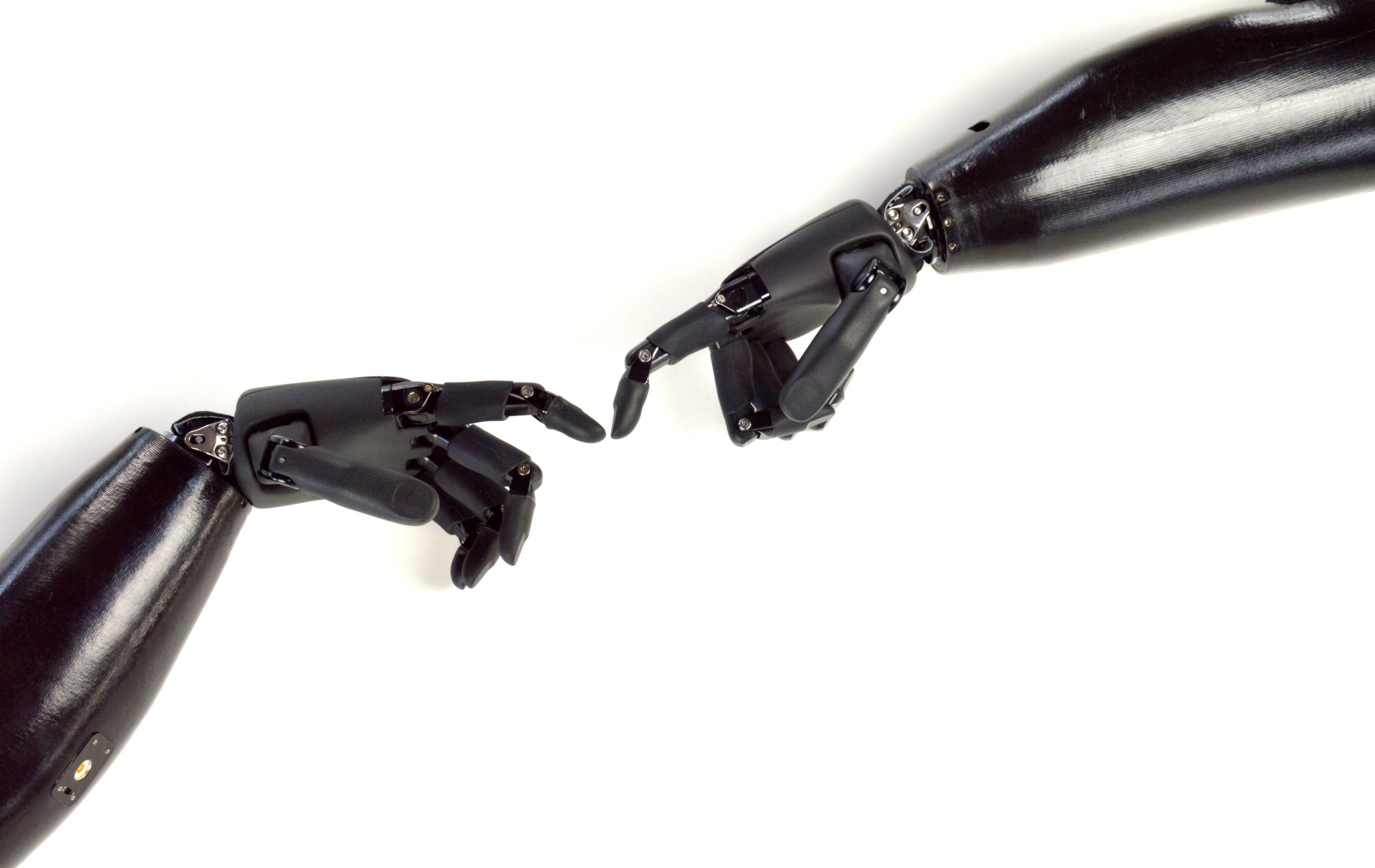I predict that on or before 2050, technologists and all of us will be presented with a fascinating question: Should AI’s be entitled to legal protection as citizens of the United States? There has been almost no discussion of this issue with the exception of several articles posted on our law firm AI platform www.future2050.net. Let me elaborate.
By the term “AI’s”, I am referring to the prospective generation of Artificial Intelligence imbued with the equivalent of consciousness. We have seen examples of these marvels in the great science fiction films dating back to 2001: A Space Odyssey (1968), Bicentennial Man (1999), Her (2013), and Ex_Machina (2014).
What these four fictional accounts have in common is that the computer systems have exhibited consciousness and self-awareness apart from their creators. To date, even the most sophisticated supercomputers cannot perform at this cognitive level since they are digitally based. What this means is that all computers effectuate steps one step at a time until the program is complete regardless of its sophistication. Even with the capacity to perform functions at the blinding speeds of trillions of operations per second, these systems are inherently flipping digital flashcards in the machine language of zeros and ones to arrive at a conclusion. Inherently, digital systems, in my opinion, are incapable of exhibiting consciousness.
The best bet at achieving the above goal would be the use of biological computers known as “wetware”. These systems which are already in use and further development rely on cultured neurons which are grown in laboratory conditions and implanted on silicon chips to obtain connectivity between the biologic and electronic. First demonstrated as viable with the use of leech brains interconnected to perform simple numeric calculations, startup companies in California have successfully developed wetware which perform marketable functions such as sniffing for explosives (utilizing cultured rodent neurons). The working theory is that with the sufficient aggregate of cultured neurons, sophisticated cognitive functions including consciousness will naturally emerge. This makes total sense to me particularly if human neurons are used as the predicate for the biologic computer.
I put the chances of developing a conscious laden AI within the next 1- to 20 years at 100%. That is an astounding prediction of which I am absolutely certain. The changes in society, science, and even our understanding of ourselves given the sudden existence of conscious AI’s will be paradigmatic and seismic in proportion.
Although there are many fascinating topics to examine relative to the arrival of biological computers, I will focus on the legal implications in this article. This issue was brilliantly depicted in the masterwork, Bicentennial Man starring the brilliant and late performer, Robin Williams who plays the part of a robot named Andrew. Although designed for domestic service, a defect in the programming somehow imbues Andrew with consciousness and the ability to form a bond with the family that purchased (it or him). The “it” or “him” is the conundrum for the family and the gravamen of the legal issue to be explored.
Andrew starts off somewhat mechanized but evolves over time in both his ability to demonstrate consciousness and even his organic appearance as he discards his metallic exoskeleton for human tissue. He desperately wants to be accepted not as a machine but as a real-life human being in this modern equivalent of the Pinocchio story of old. To complete the transformation, he ultimately programs a mechanical process which will result in his death equivalent to a human lifespan. Andrew gives up the promise of immortality to be accepted as a human being.
Andrew submits a legal petition to the futuristic legal tribunal to rule on his request that he be deemed “human” and not a robot of mechanical design. Unfortunately, and prescient, this court of the future rules that Andrew was and will always be considered a machine given his non-biologic (and non-human) origins.
I predict that the same request will be presented to the U.S. Supreme Court shortly after the arrival of the first sentient biologic computers. The principal legal issue will be whether an artificial intelligence is entitled to the privileges and immunities of a human being under the Constitution. This precise question was considered by the Court in the notorious decision of Dred Scott vs Sandford (1857). Scott, who was born into slavery, petitioned the Court to determine whether he would remain the personal property of his owners or acquire the entitlements of a U.S. citizen under the Constitution. Technically, the legal issue was whether a slave had legal standing to bring an action before the High Court. Tragically, and as a preface to the Civil War which commenced just three years later, the Supreme Court held that Scott was not entitled to the privileges and immunities of citizens of the U.S. His status was deemed to be personal property and no better or worse than an agricultural implement – a plow or even a horse. Since he was not considered to be a citizen of the U.S., his petition and case were dismissed.
The question and answer in Dred Scot would be identical within the context of AI. The principal logic employed by Justice Taney in Dred Scott was to examine the intention of the Founders when they drafted the Constitution. Since slaves were never considered to be citizens at that time, Taney reasoned that the Court lacked the authority to grant such status retroactively. Notably, Congress through the amendment process, accomplished this task prospectively by expanding citizenship to African Americans (13th Amendment) and women (19th Amendment).
Assuming a petition is brought to the Supreme Court on behalf of a conscious AI, I predict that the Court will likely follow in the discredited tracks of Dred Scott. The same logic would militate against any finding for inclusion of citizenship.
It is likely that the legal team for the AI petitioner will present expert evidence that the subject biologic computer possesses consciousness and even an ability to experience pain and the fear of death. A more sophisticated argument will be that the underlying neurons which comprise the biologic computer are of human origin and notwithstanding the lack of a human exterior – personhood is still present.
Unfortunately, these arguments will also likely fail, particularly if the conservative propensity of the court continues into the future and becomes even more apparent. The logic will dovetail with Dred Scott (and Bicentennial Man). Once a machine, always a machine. The end.
The only viable approach would be to attempt to pass an amendment to the Constitution akin to the 13th and 19th Amendment specifically granting AI’s citizenship rights. Once again, given the conservative leanings of numerous states, it is doubtful such an amendment would ever be ratified.
And so it goes that our future AI will suffer the same fate as Andrew in Bicentennial Man. The science of AI will evolve to unimaginable levels whilst the law of jurisprudence will be inexorably tied to its inglorious and rigid past.


